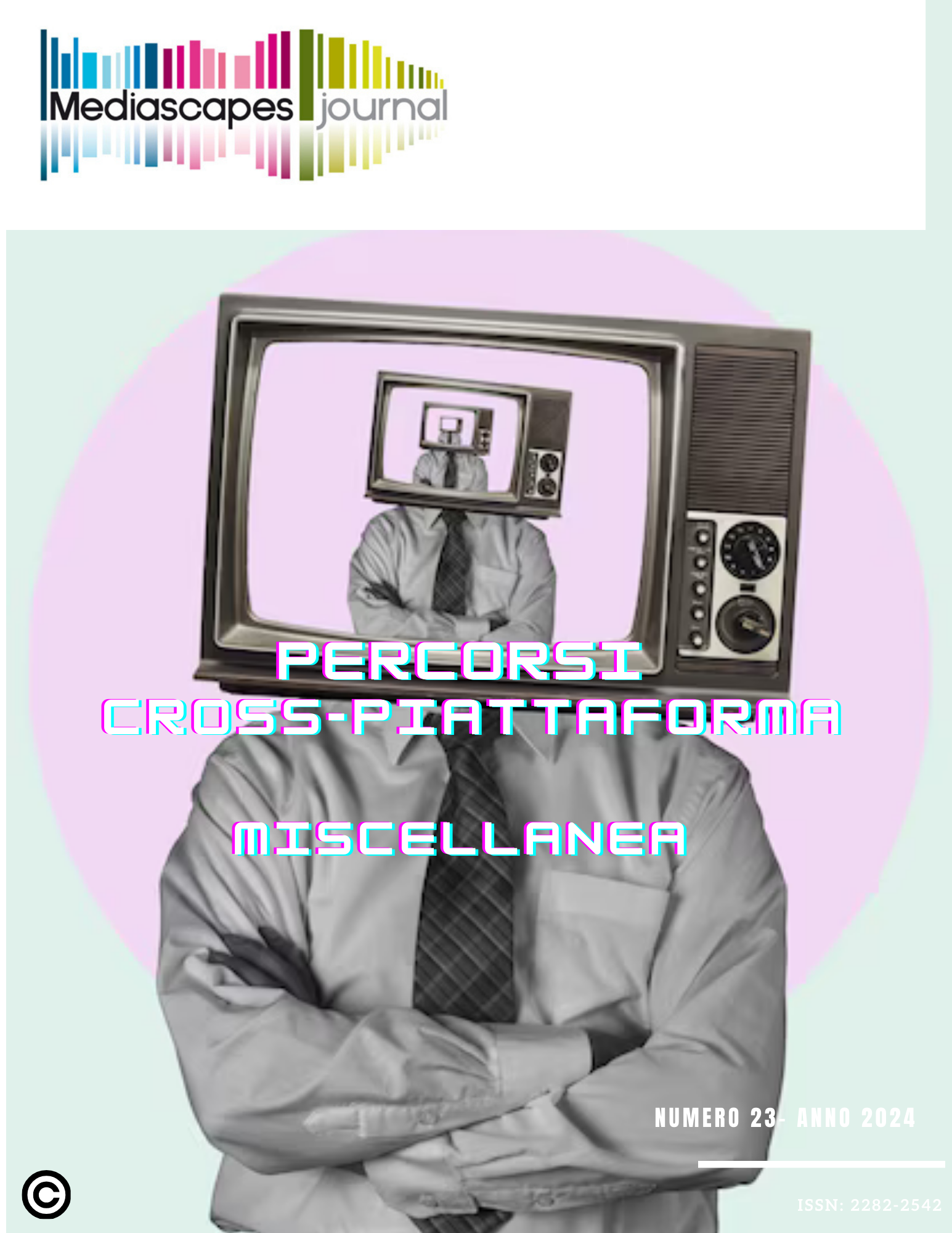Cross-platform political communication
A comparative analysis of social media campaigning by Italian populist radical right leaders
Parole chiave:
political communication, populism, cross-platform analysis, Italy, social mediaAbstract
Research shows that social media favors personalized, intimate, and emotional political communication and underlines the elective affinity between social media and populist leaders. However, cross-platform research on political communication is still rare. Existing studies focus on three aspects: how party strategists or politicians assess the relative importance of different social media platforms based on their affordances, the parties’ and politicians’ different investments in the various platforms and audience engagement, and message-tailoring on specific social media platforms. In this paper, we aim to compare the political communication of two right-wing populist party leaders in Italy—Giorgia Meloni (FdI) and Matteo Salvini (Lega)—between 2021 and 2022 on three social media platforms: Twitter, Instagram, and Facebook. The analysis focuses on time, content, and similarity. The results of the cross-platform analysis confirm the evidence of a permanent campaign mode of the two leaders and point to four main results: a cross-platform similarity in communication, a difference in audience engagement, the relevance of depoliticized political communication, and a higher audience engagement when communication focuses on positive rather than aggressive content. These findings significantly impact our understanding of political communication in the digital age.
##submission.downloads##
Pubblicato
Come citare
Fascicolo
Sezione
Licenza

TQuesto lavoro è fornito con la licenza Creative Commons Attribuzione 4.0 Internazionale.
Gli autori che pubblicano su questa rivista accettano le seguenti condizioni:
- Gli autori mantengono i diritti sulla loro opera e cedono alla rivista il diritto di prima pubblicazione dell'opera, contemporaneamente licenziata sotto una Licenza Creative Commons - Attribuzione che permette ad altri di condividere l'opera indicando la paternità intellettuale e la prima pubblicazione su questa rivista.
- Gli autori possono aderire ad altri accordi di licenza non esclusiva per la distribuzione della versione dell'opera pubblicata (es. depositarla in un archivio istituzionale o pubblicarla in una monografia), a patto di indicare che la prima pubblicazione è avvenuta su questa rivista.
- Gli autori possono diffondere la loro opera online (es. in repository istituzionali o nel loro sito web) prima e durante il processo di submission, poiché può portare a scambi produttivi e aumentare le citazioni dell'opera pubblicata (Vedi The Effect of Open Access).


